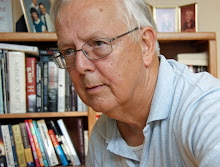 Over a half century ago, I waltzed into the ninth grade without realizing that teachers actually expected me to work. Miss Murphy, our English teacher, assigned us to read Jane Eyre, and dear God, I didn’t want to. What language was it even in? Miss Brontë never wrote anything in simple English, it seemed to me; why use only one word when she could use ten? And she never left a room in Thornfield. She issued from it. That and perhaps the fact that the story was about a girl convinced me not to do my scholastic duty.
Over a half century ago, I waltzed into the ninth grade without realizing that teachers actually expected me to work. Miss Murphy, our English teacher, assigned us to read Jane Eyre, and dear God, I didn’t want to. What language was it even in? Miss Brontë never wrote anything in simple English, it seemed to me; why use only one word when she could use ten? And she never left a room in Thornfield. She issued from it. That and perhaps the fact that the story was about a girl convinced me not to do my scholastic duty.Oh, there were consequences of my sloth, but they are beside my point. I enjoyed War and Peace, but declined to finish Anna Karenina in two tries. Then in my thirties, I reread David Copperfield to see whether I would hate it as much as I did in high school. Well, as Mark Twain might have said, the story got better with age—my age.
Fast forward to the present, 50-plus years since my disastrous introduction to Charlotte Brontë. What would I make of her work now? To find out, I recently downloaded Jane Eyre onto my new Kindle with the intent of alternating between reading it and American Lion, my February review assignment for The Internet Review of Books.
Reader, she hooked me. Yes, I chuckled at the flowery language at first, imagining my fourteen-year-old alter ego diligently reading but looking up half her words in the dictionary. As a writer, I noted techniques modern writers don't use, such as addressing the reader directly ("Reader, I married him"). Now and then a coincidence stretches credulity, as when Jane is rescued from near-certain death by three people who just happen to be first cousins she never knew existed. (When was the last time that happened to you, reader?) A couple of other events occur that help greatly to resolve the plot, and I won’t mention them but to say they are deus ex machina. Yet Jane Eyre has a number of credible twists driven by the force of her personality.
The critic Harold Bloom includes Charlotte Brontë in Genius: A Mosaic of One Hundred Exemplary Minds. He suggests that Brontë intended Jane Eyre to mirror her own personality and virtues, but Jane’s goodness approaches a perfection I would rather not see in a real person. So yes, I root for her—an essential reaction to good fiction—yet I would not last long in the company of a real Jane Eyre, nor she in mine. A plain-looking young woman of frail constitution and fierce stubbornness, she consents to nothing out of accord with her view of God's will—and her God doesn’t put up with much.
Perhaps Jane Eyre comes as close to feminist literature as one is likely to find in the early 19th century. Jane shows men all the deference expected in that era, even addressing Rochester, the man she adores, as “sir” and “Master.” But wait til the end and see how that relationship changes.
So now I have to finish reading American Lion and don't have 50 years to write the review; it’s due in February.










2 comments:
I can't tell you how long it took me to come back to the classics after having them "taught" to me at school. We were forced to analyse every line and examine the implied meaning everywhere without regard for the story. Jane Austen's Persuasion was ruined for me until I was well into my 30s and it's such a shame.
Many of the books by Dickens and Austen were meant to be read as rattling good stories instead of as set texts. There may be layers of meaning in there but, for the authors, I'm sure that the characters and story were paramount.
It's been wonderful discovering all these classics without a teacher hanging over my shoulder telling me which bits I need to "Appreciate"!
Laura Essendine
Author – The Accidental Guru
The Accidental Guru Blog
The Books Limited Blog
Ivanhoe was my Waterloo in school. Read it again ca. 30, and then read about ten more Scott novels. Yes, they wrote differently then, but some of them are still more than readable. My teachers didn't sick us Ivanhoe until HS, but I wasn't ready. Good judgment about kids would help.
Post a Comment